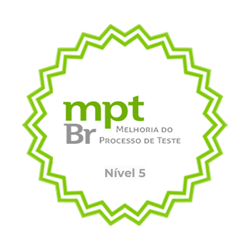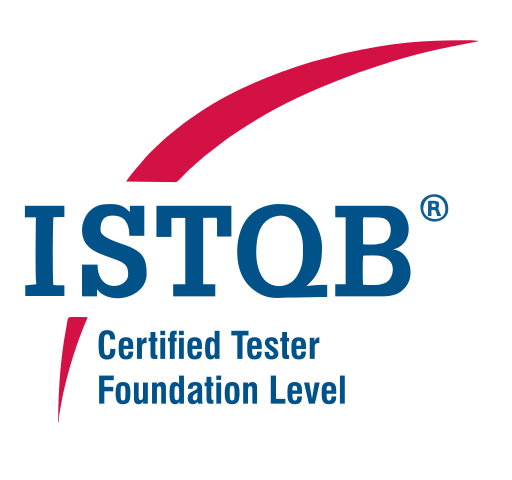Testing of Software with Certified Excellence

First Company Certified MPT.Br Level V
BRISA is the first Brazilian company to achieve level V maturity of the MPT.Br model (Brazilian Test Process Improvement), the highest level of software testing certification in Brazil.



Comprehensive Testing Services
We offer a complete range of testing services to ensure the quality, performance, and security of your software at all stages of development.
Functional Testing
Comprehensive verification of requirements and functionalities to ensure that your software meets specifications and user expectations.
Performance Testing
Rigorous evaluation of speed, scalability, and stability under different load conditions to ensure an optimized user experience.
Security Testing
Identification and mitigation of vulnerabilities to protect your data and systems against threats and ensure compliance with regulations.
Usability Testing
User experience evaluation to ensure intuitive, accessible interfaces that meet end-user expectations.
Integration Testing
Verification of communication and interoperability between components, modules, and systems to ensure cohesive operation.
Automation Testing
Development and implementation of automation frameworks for continuous, fast, and consistent testing throughout the development cycle.
Our Testing Methodology
We apply a structured and proven approach to ensure the quality of your software at each stage of the development cycle.
Planning
We develop a comprehensive test plan, defining scope, objectives, schedule, necessary resources, and strategies to ensure complete and efficient coverage.
- Requirements analysis and project documentation
- Scope and test objectives definition
- Risk identification and critical areas
- Resource allocation and schedule
- Selection of testing tools and environments

Analysis
We create detailed test cases based on requirements, usage scenarios, and risk analysis, ensuring comprehensive coverage of all functionalities and critical flows.
- Development of detailed test cases
- Creation of scenarios based on requirements
- Boundary conditions analysis and exception cases
- Risk-based prioritization and business impact
- Preparation of representative test data

Execution
We execute tests methodically, documenting results, identifying defects, and performing retests after corrections to ensure software quality.
- Manual and automated execution of test cases
- Detailed documentation of results and evidence
- Defect identification, classification, and logging
- Efficient communication with development teams
- Retests after corrections to validate solutions

Reports
We provide detailed reports with quality metrics, test coverage, defect status, and recommendations for data-driven decision-making.
- Real-time dashboards of test progress
- Quality metrics and code coverage
- Defect trends analysis and patterns
- Executive reports for stakeholders
- Data-driven recommendations for improvements

Continuous Improvement
We conduct retrospective analyses to identify improvement opportunities, optimize processes, and implement lessons learned in future cycles.
- Retrospective analysis of processes and results
- Identification of bottlenecks and inefficiencies
- Optimization of automation scripts and frameworks
- Knowledge sharing and best practices
- Implementation of continuous incremental improvements

Tools and Technologies
We use the most advanced tools and technologies to ensure efficient, accurate, and comprehensive testing.
Test Automation
- Selenium
- Cypress
- Appium
- Robot Framework
- Katalon Studio
Test Management
- JIRA
- TestRail
- qTest
- Azure DevOps
- ALM/Quality Center
Performance Testing
- JMeter
- LoadRunner
- Gatling
- K6
- NeoLoad
API Testing
- Postman
- SoapUI
- REST Assured
- Karate DSL
- Insomnia
Security Testing
- OWASP ZAP
- Burp Suite
- Acunetix
- Nessus
- Fortify
UI/UX Testing
- Axure
- UserTesting
- Lookback
- Optimal Workshop
- Hotjar
Accessibility Testing
- WAVE
- Conteúdo: Axe
- Lighthouse
- NVDA
- VoiceOver
DevOps and CI/CD
- Jenkins
- GitLab CI
- GitHub Actions
- Travis CI
- TeamCity
Frequently Asked Questions
Answers to the most common questions about our software testing services.
What is the importance of software testing for my business?
Software testing is essential to ensure the quality, reliability, and security of your systems. They significantly reduce the risk of failures in production, decrease maintenance costs, improve user experience, and protect your brand’s reputation. For critical systems, rigorous testing is essential to avoid financial losses and regulatory compliance issues.
How does MPT.Br level V certification benefit my project?
Our MPT.Br level V certification ensures that we follow the highest quality standards in testing processes. This translates into greater efficiency in defect detection, more mature and consistent processes, better predictability of results, and resource optimization. Your projects benefit from proven and constantly improved methodologies, resulting in higher quality software.
How long does it take to perform complete tests on a system?
The time required for testing varies according to the complexity, size, and criticality of the system. Small projects may require a few weeks, while complex systems may need months of testing. We work with agile approaches that allow incremental and continuous testing, aligned with your development cycle, to ensure quality deliveries without unnecessary delays.
Is it possible to integrate your testing services into our agile development process?
Absolutely. Our testing services are fully adaptable to agile methodologies such as Scrum and Kanban. We integrate our testers directly into your development teams, participate in agile ceremonies, and implement continuous testing practices and shift-left testing. We also support the implementation of CI/CD pipelines with integrated automated tests.
How do you deal with complex legacy system tests?
For legacy systems, we adopt a specialized approach that includes risk analysis to identify critical areas, reverse engineering to document expected behaviors, creation of regression test suites, and gradual implementation of automation where feasible. Our experience with various legacy systems allows us to efficiently navigate the complexity and lack of documentation typical of these systems.
What metrics do you use to measure the effectiveness of the tests?
We use a comprehensive set of metrics, including code coverage and requirements, defect density, defect detection effectiveness, rework rate, mean time between failures, and testing ROI. We tailor our metrics to the specific goals of your project and provide customized dashboards that allow you to clearly visualize software progress and quality over time.
Ensure exceptional quality of your software
Get in touch for a personalized assessment and discover how our testing services can enhance the quality of your product.